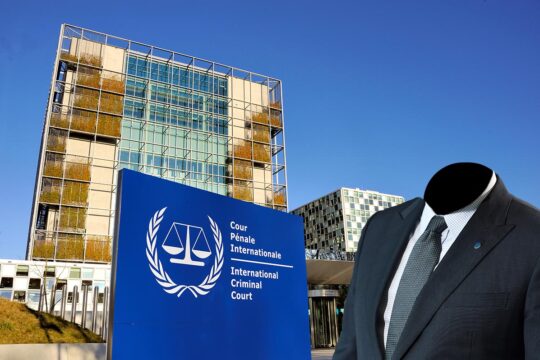The general was being cross-examined by Bagosora's lead counsel, Mr. Raphael Constant (France). “What I knew and what I learnt from information is that there were hardliners including Bagosora who negotiated the Arusha peace accord and who were not satisfied with the results of the protocol,” Dallaire explained. He described Bagosora as a person who could not go unnoticed anywhere, who had much authority and influence that you could not fail to notice, “People spoke to him in a respected manner. Even before the war I saw the former chief de Cabinet in the ministry of defense as an authority,” the witness stated. The general is the 37th prosecution witness. Mr Constant challenged him regarding how he obtained credible information to decide that Bagosora was an extremist. The General responded that “a process over time led me to see that Bagosora was not only a senior person but a major player in the whole event. I gathered information from various quarters and accumulated it. ”“I also had information from independent sources, the OAU representative, ambassadors and several sources which could be considered neutral”, he added, saying also that, at the beginning of 1994, “there were incidents and reports drawn by an intelligence officer who pointed his finger directly at Bagosora”The witness continued that there were modests, extremists and hardliners in both the MRND and the RPF. He described the RPF extremists as being paranoid about security and the extremists on the government side to be confrontational, more geared to defending Hutu interests. “They were not serious to take the necessary steps to embrace new dimensions. It had people who were not in a hurry to look for a solution,” he said. The cross-examination continues tomorrow. This trial for genocide, crimes against humanity and war crimes is Taking place in Chamber one of the ICTR, presided by Norwegian judge Erik Mose, assisted by judges Serguei Egorov from Russia and Jai Ram Reddy from Fiji. SV/CE/FH (ML0121e)
Countries
- Afghanistan
- Algeria
- Angola
- Argentina
- Armenia
- Australia
- Austria
- Azerbaijan
- Bahrain
- Bangladesh
- Belarus
- Belgium
- Benin
- Bosnia & Herzegovina
- Brazil
- Burkina Faso
- Burundi
- Cambodia
- Cameroon
- Canada
- Central African Republic
- Chad
- Chile
- China
- Colombia
- Cote d’Ivoire
- Croatia
- Cyprus
- Dem. Rep. Of Congo
- Denmark
- Ecuador
- Egypt
- El Salvador
- Equatorial Guinea
- Eritrea
- Ethiopia
- Finland
- France
- Gabon
- Gambia
- Georgia
- Germany
- Ghana
- Greenland
- Guatemala
- Guinea
- Haiti
- Honduras
- Hungary
- Indonesia
- Iran
- Iraq
- Ireland
- Israel
- Italy
- Japan
- Jordan
- Kenya
- Kosovo
- Laos
- Lebanon
- Liberia
- Libya
- Lithuania
- Malaysia
- Maldives
- Mali
- Mauritania
- Mauritius
- Mexico
- Myanmar
- Namibia
- Nepal
- Netherlands
- New Zealand
- Nicaragua
- Niger
- Nigeria
- North Korea
- Norway
- Pakistan
- Palestine
- Peru
- Philippines
- Poland
- Republic of Congo
- Russia
- Rwanda
- Scotland
- Senegal
- Serbia
- Seychelles
- Sierra Leone
- Somaliland
- South Africa
- South Korea
- South Sudan
- Spain
- Sri Lanka
- Sudan
- Suriname
- Sweden
- Switzerland
- Syria
- Taiwan
- Tanzania
- Thailand
- Timor-Leste
- Togo
- Tunisia
- Turkey
- Uganda
- Ukraine
- United Arab Emirates
- United Kingdom
- United States
- Uruguay
- Vanuatu
- Venezuela
- Vietnam
- Yemen
- Zimbabwe



